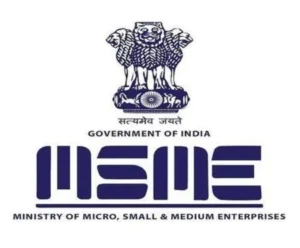- Brief background for introduction of MUDRA Loan Scheme by Govt. of India
As per NSSO survey (2013), there are around 5.77 crore small/micro units in the country, engaging around 12 crore people, mostly individual proprietorship/Own Account Enterprises. Over 60% of units are owned by persons belonging to Scheduled Caste, Scheduled Tribe or Other Backward Classes. Most of these units are outside the formal banking system, and hence are forced to borrow from informal sources or use their limited owned funds. MUDRA Loan Scheme has been proposed to bridge this gap. MUDRA Loan Scheme will aim to increase the confidence of the aspiring young person to become first generation entrepreneurs as also of existing small businesses to expand their activities.
- Brief details of the Product
MUDRA loans are extended by banks, NBFCs, MFIs and other eligible financial intermediaries as notified by MUDRA Ltd. The Pradhan Mantri MUDRA Yojana (PMMY) announced on 8th April 2015, envisages providing MUDRA loan, upto Rs. 10 lakh, to income generating micro enterprises engaged in manufacturing, trading and services sectors. The overdraft amount of Rs. 5000 sanctioned under PMJDY has been also classified as MUDRA loans under Prime Minister MUDRA Yojana (PMMY). The MUDRA loans are extended under following three categories :
Loans upto Rs. 50,000/- (Shishu)
Loans from Rs. 50,001 to Rs. 5 lakh (Kishore)
Loans from Rs. 5,00,001/- to Rs. 10 lakh (Tarun)
More focus would be given to Shishu. Accordingly, all advances granted on or after 8th April 2015 falling under the above category are classified as MUDRA loans under the PMMY. The application forms for such loans shall also carry the name “Pradhan Mantri MUDRA Yojana”
- Eligible borrowers
- Individuals
- Proprietary concern.
- Partnership Firm.
- Private Ltd. Company.
- Public Company.
Any other legal forms. The applicant should not be defaulter to any bank or financial institution and should have a satisfactory credit track record. The individual borrowers may be required to possess the necessary skills/experience/ knowledge to undertake the proposed activity. The need for educational qualification, if any, need to be assessed based on the nature of the proposed activity, and its requirement.
- Purpose of Assistance/Nature of assistance.
Need based term loan/OD limit/composite loan to eligible borrowers for acquiring capital assets and/or working capital/marketing related requirements. The MUDRA loans are provided for income generating small business activity in manufacturing, processing, service sector or trading. The Project cost is decided based on business plan and the investment proposed. MUDRA loan is not for consumption/personal needs. For the purpose of working capital limit, MUDRA has launched a new product called “MUDRA Card”, which is a Debit card issued on RuPay platform, and provides hassle free credit in a flexible manner.
- Amount of assistance
Upto to Rs. 10 lakh in three categories viz. Shishu, Kishore and Tarun.
- Margin/Promoters Contribution
Margin/Promoters Contribution is as per the policy framework of the bank, based on overall guidelines of RBI in this regard. Banks may not insist for margin for Shishu loans
- Interest rate
Interest rates are to be charged as per the policy decision of the bank. However, the interest rate charged to ultimate borrowers shall be reasonable. Scheduled Commercial Banks, RRBs and Cooperative Banks wishing to avail of refinance from MUDRA will have to peg their interest rates, as advised by MUDRA Ltd., from time to time.
- Upfront fee/Processing charges.
Banks may consider charging of upfront fee as per their internal guidelines. The upfront fee/processing charges for Shishu loans are waived by most banks.
- Security
- First charge on all assets created out of the loan extended to the borrower and the assets which are directly associated with the business/project for which credit has been extended.
- DPN (wherever applicable).
- CGTMSE (wherever felt desirable)/MUDRA Guarantee cover (as and when introduced).
In terms of RBI guidelines issued vide Master Circular on lending to MSME Sector (para 4.2) dated July 01, 2014, in respect of loans upto Rs. 10 lakh, banks are mandated not to accept collateral security in the case of loans upto Rs. 10 lakh extended to units in the Micro Small Enterprises (MSE) Sector. Banks are required to encourage their branch level functionaries to avail of the Credit Guarantee Scheme cover, wherever felt desirable.
- Tenor of Assistance
Based on the economic life of the assets created and also the cash flow generated. However, MUDRA’s refinance assistance will be for a maximum tenor of 36 months which will also be aligned to terms of allotment of MUDRA funds by RBI from time to time
- Repayment Term Loan :-
To be repaid in suitable installments with suitable moratorium period as per cash flow of the business.
OD & CC Limit
Repayable on demand. Renewal and Annual Review as per internal guidelines of the Bank.
- Availability of the loan
Mudra loan under PMMY is available at all bank branches across the country. Mudra loan is also issued by NBFCs / MFIs who are engaged in financing for micro enterprises in small business activities”











